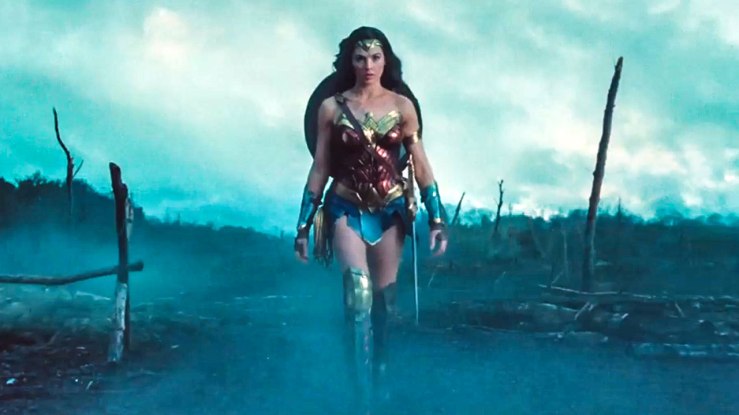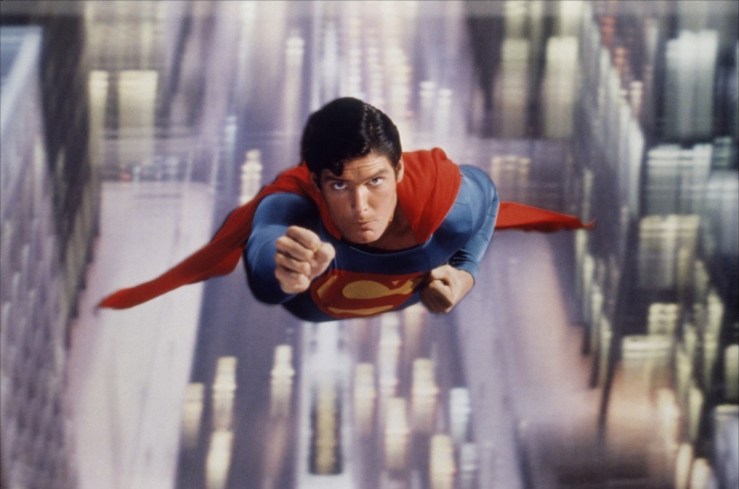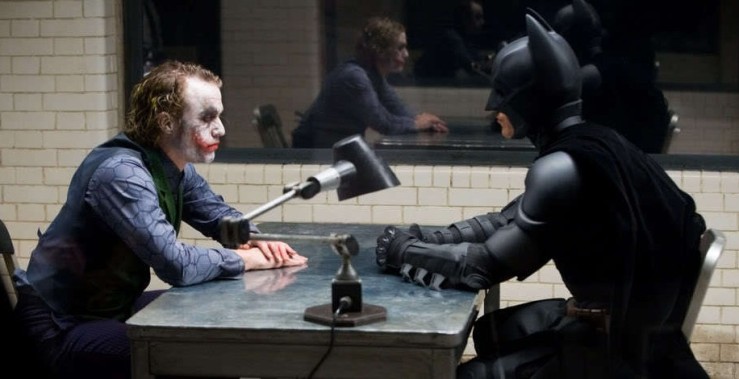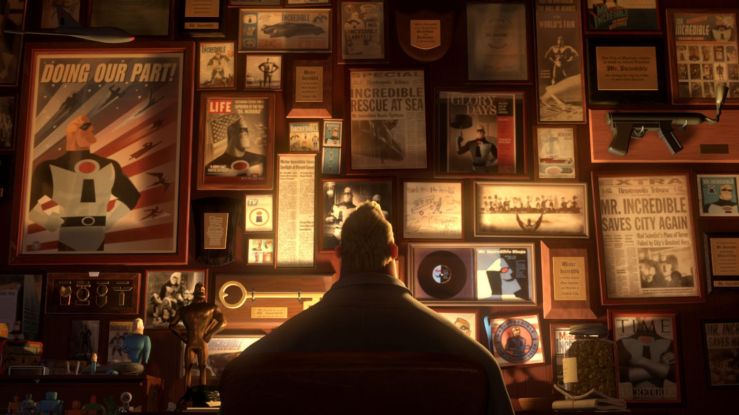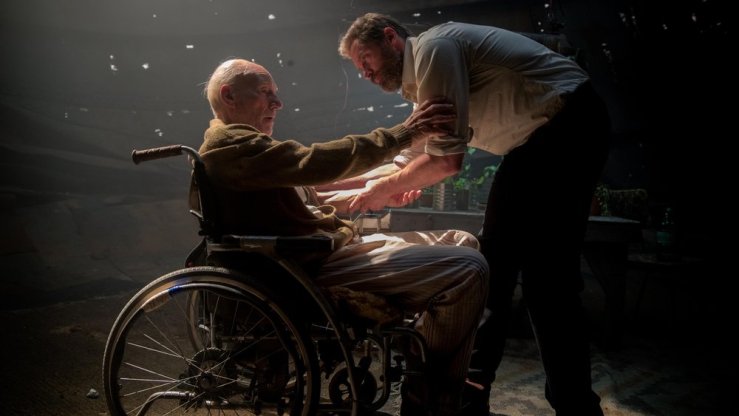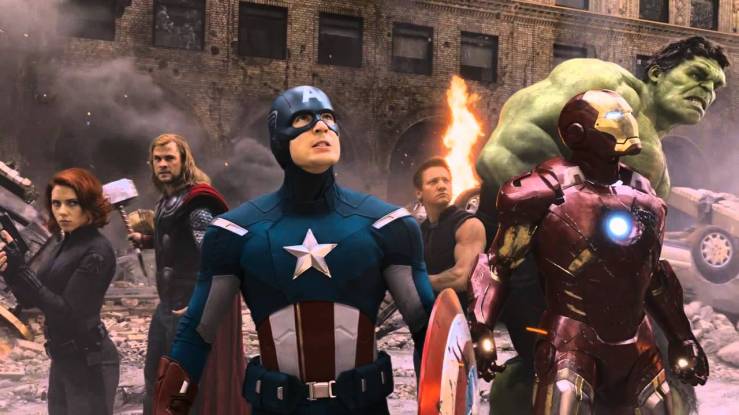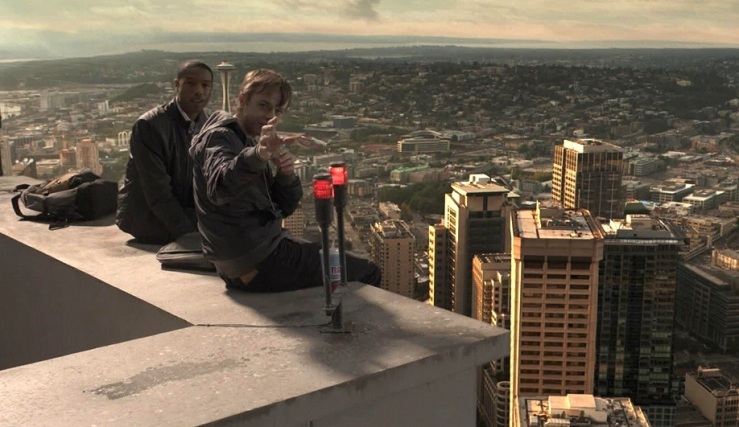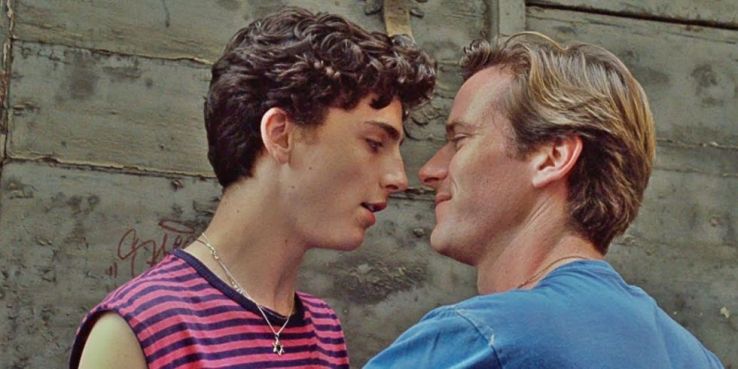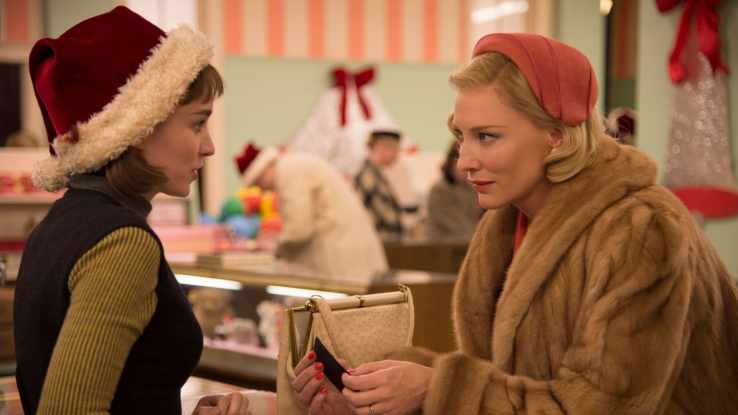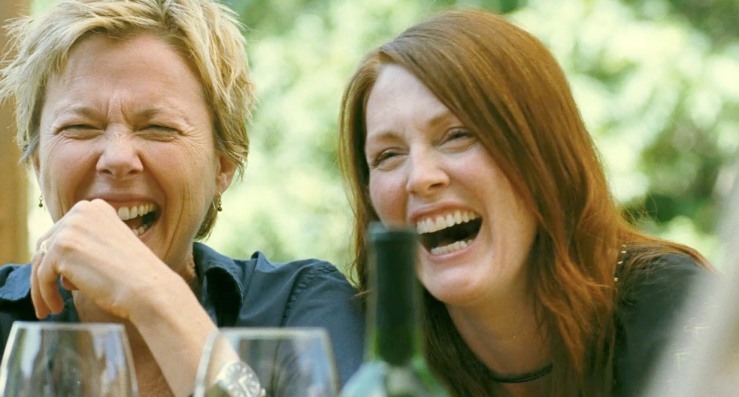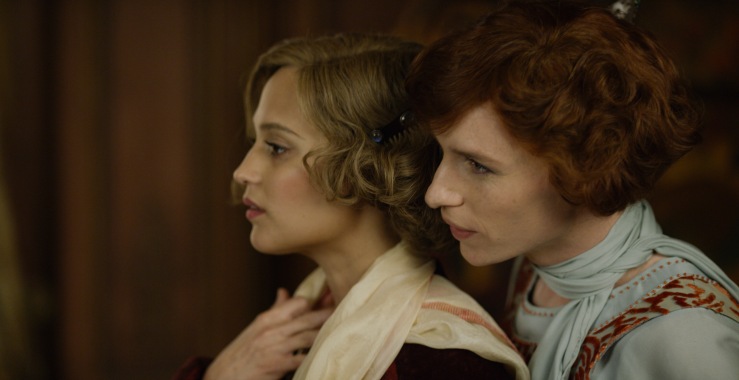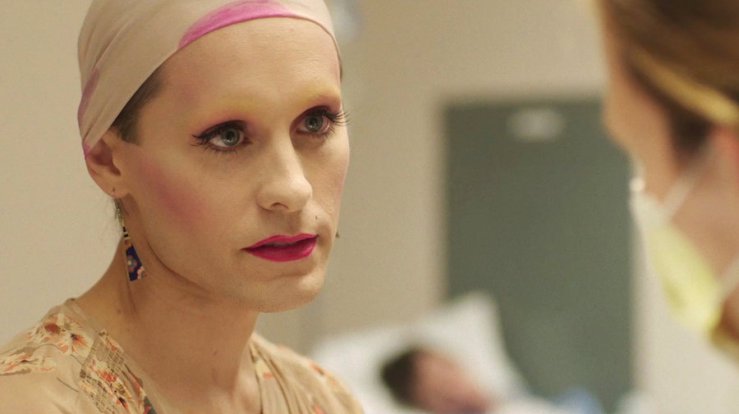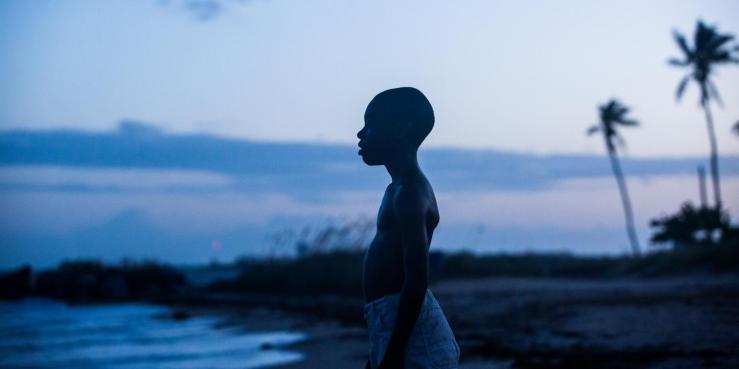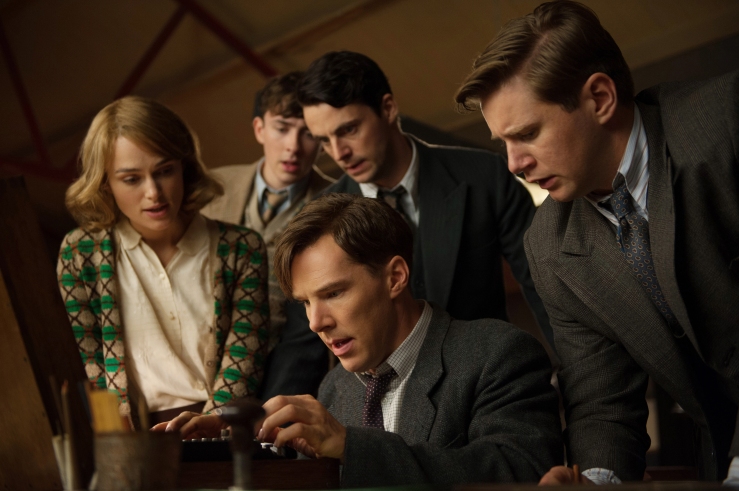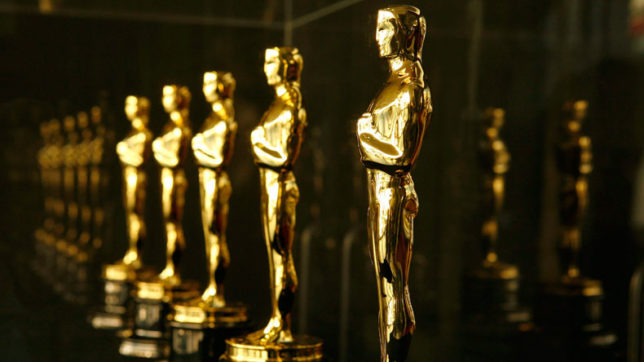 Tomorrow night, the Oscars will be upon us for the 90th time, and the Academy seems to be doing everything in its power to reboot after a year’s worth of mishaps and mistakes on Hollywood’s part. And also of their own doing. While most people ended up throwing away their predictions for last year in a wild dumpster fire, this year seems to be both safer and harder to predict. There are obvious “safe” films that will likely win major awards, but then there seems to be a dark horse in every category (even the tech awards) that actually has a shot at taking home the gold. That’s what this final blog post on the 90th Academy Awards will focus on, predicting who will most likely win, as well as who could win. And just for the fun of it, I’ll throw in my own personal opinions on who should win.
Tomorrow night, the Oscars will be upon us for the 90th time, and the Academy seems to be doing everything in its power to reboot after a year’s worth of mishaps and mistakes on Hollywood’s part. And also of their own doing. While most people ended up throwing away their predictions for last year in a wild dumpster fire, this year seems to be both safer and harder to predict. There are obvious “safe” films that will likely win major awards, but then there seems to be a dark horse in every category (even the tech awards) that actually has a shot at taking home the gold. That’s what this final blog post on the 90th Academy Awards will focus on, predicting who will most likely win, as well as who could win. And just for the fun of it, I’ll throw in my own personal opinions on who should win.
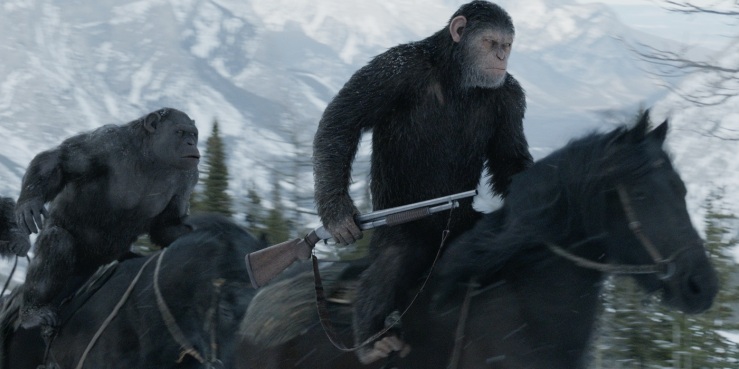 BEST VISUAL EFFECTS
BEST VISUAL EFFECTS
Will win: War for the Planet of the Apes
Could win: Blade Runner 2049
Should win: Blade Runner 2049
After the first two films in the rebooted Planet of the Apes franchise lost this one to Hugo and Interstellar, the third film comes out in a year where all the VFX nominees are blockbusters. The guilds favor the strides this franchise takes in motion capture technology, as do the Critics Choice Awards. But just as favored at the BAFTAs is Blade Runner 2049 and the creation of the dystopian future filled with Replicants and flying cars. Neither film has precedence winning the VFX Oscar (the original Blade Runner lost to E.T. The Extra-Terrestrial), so history will be made for one franchise or the other.
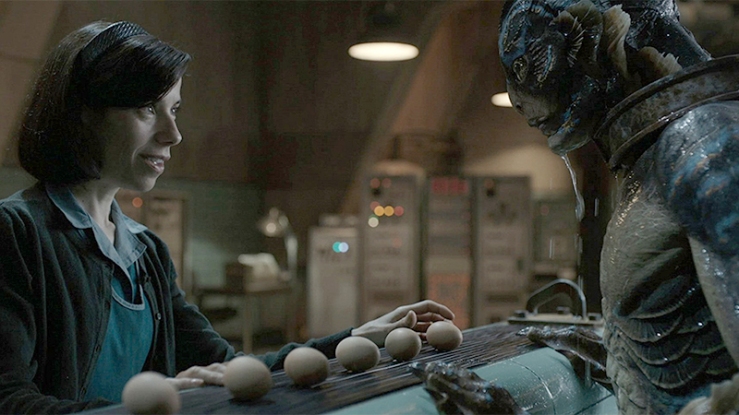 BEST PRODUCTION DESIGN
BEST PRODUCTION DESIGN
Will win: The Shape of Water
Could win: Blade Runner 2049
Should win: The Shape of Water
A period piece set in the 1950s winning Best Production Design? Big shocker! While this would’ve been a fairly safe bet from the beginning, The Shape of Water has been cleaning up this category on the awards circuit. The guilds love it too, but also worth keeping in mind is that the guilds often have multiple sub-categories in which they can award other films. This year, it was Blade Runner 2049 that took those major subcategories and found its way to the Oscar nominees, though it may be a case where the nomination is its own reward.
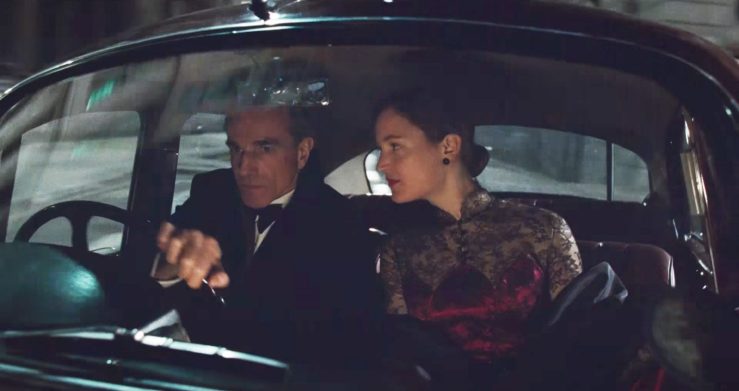 BEST COSTUME DESIGN
BEST COSTUME DESIGN
Will win: Phantom Thread
Could win: The Shape of Water
Should win: The Shape of Water
Being about fashion as it is, it should be no surprise that Phantom Thread has been cleaning house in this category. Every major voting body is falling head-over-heels in love with this one, with the exception of one major body that could end its big streak: the guild. They instead went over to The Shape of Water, which had better costuming in my opinion anyway in that you could tell in an instant where and when the film was set. One of the biggest issues with Phantom Thread is that you could never tell what location or decade the setting was, and you’d think the costumes would’ve done that. But if Daniel Day-Lewis doesn’t take home his fourth acting trophy, this would be the Academy’s way of honoring his supposed final performance.
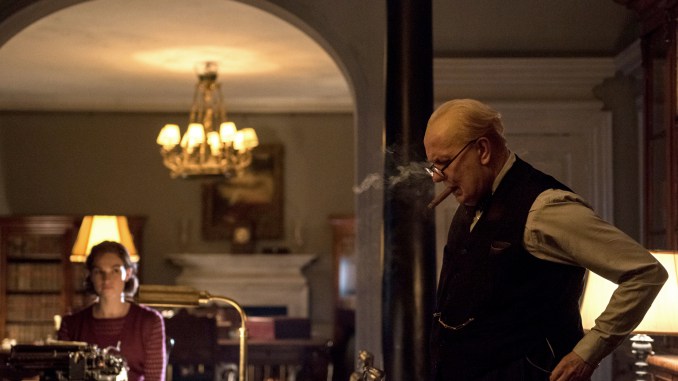 BEST MAKEUP AND HAIRSTYLING
BEST MAKEUP AND HAIRSTYLING
Will win: Darkest Hour
Could win: Victoria & Abdul
Should win: Darkest Hour
Everybody loves Gary Oldman in a fat suit, so I wholly expect Darkest Hour to win in this category. It doesn’t appear to be facing any strong competition, but Suicide Squad won this category last year, so anything is possible. With that being said, the most likely alternative would be Victoria & Abdul, which only has one other nomination. If the Academy wants to reward that film for something, this is a possibility. And while I did pick Darkest Hour as the “rightful” winner, it should be noted that I haven’t seen either of the other nominees, and I will never understand why Best Makeup and Hairstyling only has three nominees as opposed to five.
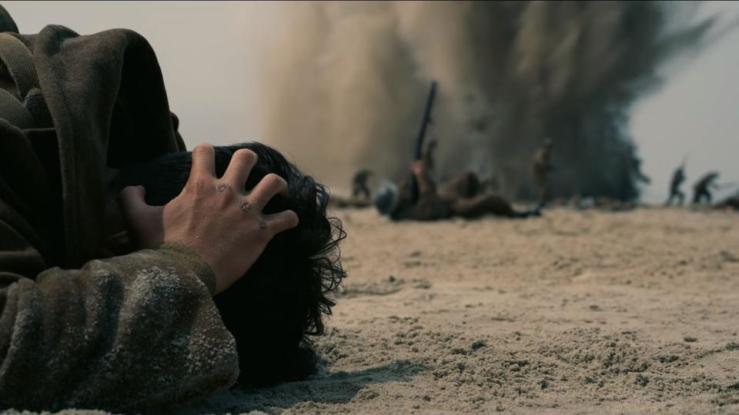 BEST SOUND EDITING/MIXING
BEST SOUND EDITING/MIXING
Will win: Dunkirk
Could win: Blade Runner 2049
Should win: Dunkirk
Dunkirk will most likely take home both sound awards, as it is heavily favored by the guilds and other voting groups like the Critics Choice Awards and the BAFTAs. And it should be, as the sound and score are so perfectly integrated into each other that it helps create a unique cinematic experience. But just as we discussed earlier, the guilds have sub-categories, and that’s where Blade Runner 2049 is building a lot of support. The Academy is known for their aversion to blockbusters, but we must remember upsets by Suicide Squad, Fantastic Beasts and Where to Find Them, and Mad Max: Fury Road in the technical categories, so there is the off-chance that Blade Runner 2049 could take home quite a few awards this year.
 BEST FILM EDITING
BEST FILM EDITING
Will win: Baby Driver
Could win: Dunkirk
Should win: Dunkirk
Going into the awards season, everyone thought this was Dunkirk‘s to lose, as its non-linear editing structure kept the stories moving along until they intersected at an explosive crescendo. However, we then saw the film tie with Baby Driver at the Critics Choice Awards, and lose completely to that same film at the BAFTAs. The only saving grace for Dunkirk is the guild didn’t go for its strongest competition at all, but will it be enough to push it past the current frontrunner?
 BEST CINEMATOGRAPHY
BEST CINEMATOGRAPHY
Will win: Blade Runner 2049
Could win: Dunkirk
Should win: Dunkirk
The Academy is notoriously adverse to blockbuster filmmaking, but they also love rewarding an overdue master, and that’s exactly what Roger Deakins is. Fourteen nominations in without a single win, Oscar would love to reward him for his efforts in some of his best work. That being said, the Academy is still adverse to blockbusters, so they could go looking for something else to reward. Dunkirk‘s entrancing experience is largely due to its cinematography, so don’t be too surprised if Roger Deakins loses yet another award. But as of now, this is the one category where Blade Runner 2049 is the undisputed frontrunner.
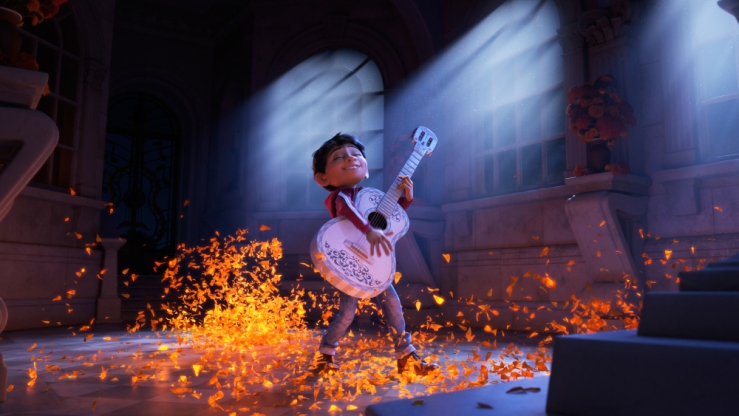 BEST ANIMATED FEATURE
BEST ANIMATED FEATURE
Will win: Coco
Could win: The Breadwinner
Should win: Coco
Doubt Pixar at your peril. Outside of Monsters, Inc. and Cars, every nominee they’ve offered to Oscar has walked away winning, even the less-than-stellar ones (ahem, Brave). But again, sub-categories, and the Annie Awards do have a few of those, including one for independent animation. The Breadwinner managed to take home that one, but will it hold up against the studio power that keeps the champion’s belt in Pixar’s corner? Well, this is the same studio power that got a nomination for The Boss Baby, so…
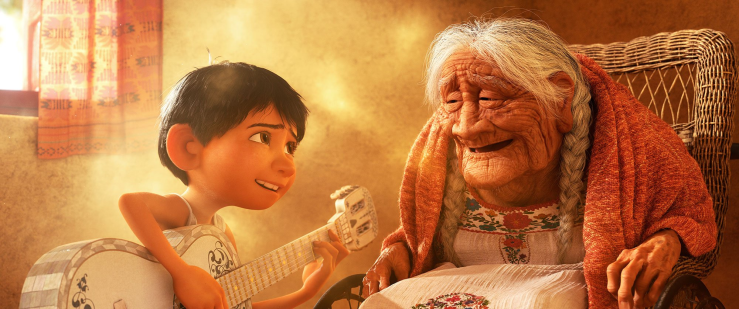 BEST ORIGINAL SONG
BEST ORIGINAL SONG
Will win: “Remember Me” (Coco)
Could win: “This Is Me” (The Greatest Showman)
Should win: “Remember Me” (Coco)
This category loves animation. This category also loves Disney, which happens to specialize in animation and own Pixar. This category also loves a song that can have multiple meanings depending on who sings it, which is exactly what “Remember Me” is. But in a way, that’s also what “This Is Me” is, and this category also loves musicals. But The Greatest Showman has an uphill battle due to its mixed critical reception, which is largely in part due to the same meaning being derived from all of its songs that sound the same. Coco took one song and made it sound and feel different every time, and most of the precursor awards seems to agree. The Golden Globes went with “This Is Me”, but I feel like Disney has already acquired this one.
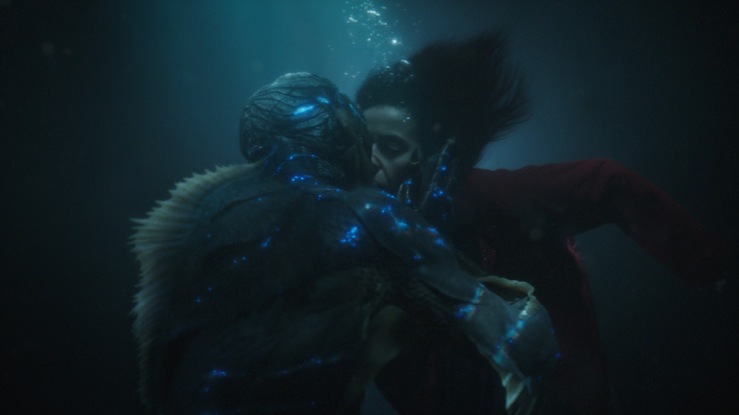 BEST ORIGINAL SCORE
BEST ORIGINAL SCORE
Will win: The Shape of Water
Could win: Dunkirk
Should win: Dunkirk
Yet another instance where The Shape of Water is drowning out the competition, it seems that there’s no stopping Alexandre Desplat from winning his second Oscar, his first being a surprise win for The Grand Budapest Hotel. But his first win was a surprise, so the same thing could happen to him this time around, and Dunkirk is taking home all the sound awards. Since its sound design is blended seamlessly with its score, there is a chance that Hans Zimmer could also take home his second Oscar, his first one being… The Lion King?!
 BEST ADAPTED SCREENPLAY
BEST ADAPTED SCREENPLAY
Will win: Call Me By Your Name
Could win: The Disaster Artist
Should win: The Disaster Artist
For some reason, Call Me By Your Name is winning this category in spades, which means I may be drunk by the time the ceremony is over. But it didn’t start out that way, as the National Board of Review gave this category to The Disaster Artist, which lost out on a highly-anticipated Best Actor nomination for James Franco. Since Call Me By Your Name is present in three other categories, it’s possible that the Academy may go for the film about Hollywood and reward The Disaster Artist in the only category it was nominated for. Or they’ll go for the one starring Armie Hammer as a gay pedophile, I don’t know. We’ll see how drunk I get tomorrow.
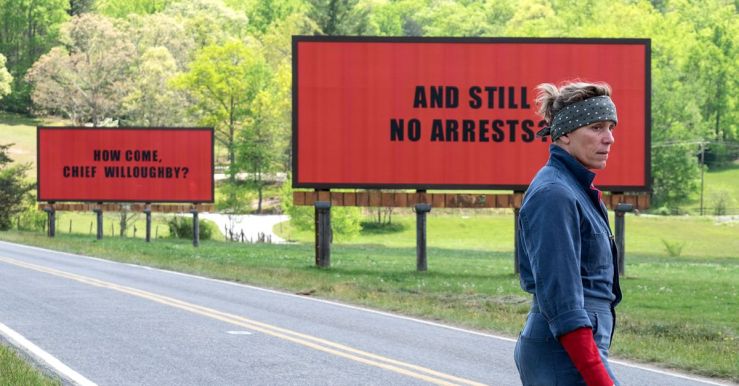 BEST ORIGINAL SCREENPLAY
BEST ORIGINAL SCREENPLAY
Will win: Three Billboards Outside Ebbing, Missouri
Could win: Get Out
Should win: The Shape of Water
This one has been in a little more turmoil, as what was perceived to be the frontrunner in Three Billboards Outside Ebbing, Missouri was not nominated at the Writer’s Guild of America. It also lost at the Critics Choice Awards to Get Out, which later took home the top prize at the WGA. Unlike The Shape of Water, Get Out is not the strongest competitor for Best Picture, so this could be where the Academy decides to reward the horror-comedy written by Jordan Peele. But with the backing of the Golden Globes and the BAFTAs, as well as being a top contender for Best Picture, the safe bet would be Three Billboards Outside Ebbing, Missouri.
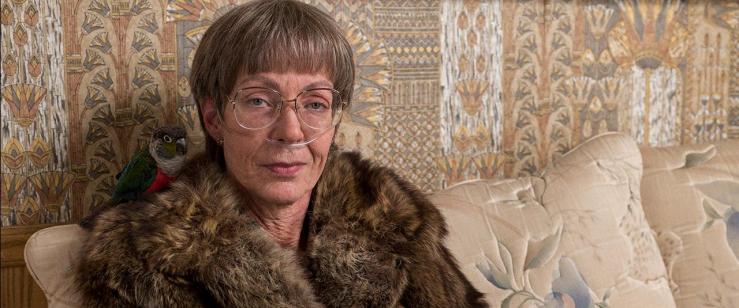 BEST SUPPORTING ACTRESS
BEST SUPPORTING ACTRESS
Will win: Allison Janney (I, Tonya)
Could win: Laurie Metcalf (Lady Bird)
Should win: Laurie Metcalf (Lady Bird)
Allison Janney has dominated this category just as she dominates I, Tonya. I don’t see that changing come Oscar Sunday, but the National Board of Review can still unveil a dark horse, and this year it was Laurie Metcalf. Janney is a dominating force with little range or development, though her performance is fantastic. Metcalf, on the other hand, is one of the driving forces of Lady Bird, and I would contend that the film wouldn’t be as good as it was without her nuanced performance. So when the competition is between nuance and domination, we’ll have to see which the Academy values more this year.
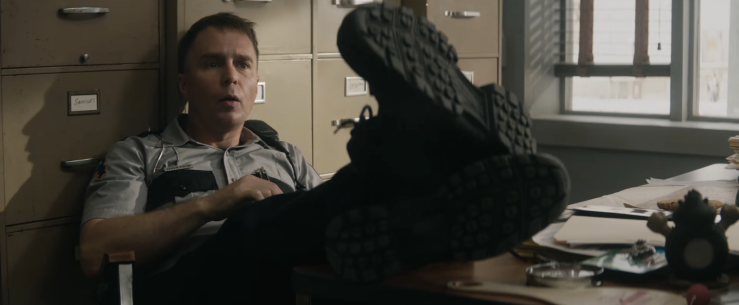 BEST SUPPORTING ACTOR
BEST SUPPORTING ACTOR
Will win: Sam Rockwell (Three Billboards Outside Ebbing, Missouri)
Could win: Willem Dafoe (The Florida Project)
Should win: Willem Dafoe (The Florida Project)
Again, the National Board of Review went with Willem Dafoe. Again, this is the only category that recognized The Florida Project. And again, it may be shut out by a more high-profile film with an overdue actor. Unlike many overdue performers, Sam Rockwell would be winning for his first nomination, and his performance will certainly be one of the highlights of his career regardless. It also doesn’t hurt that he’s playing a racist cop with a three-dimensional arc. But how much of that is the actor versus the screenplay? And that’s why Willem Dafoe should be taken seriously as a dark horse.
 BEST ACTRESS
BEST ACTRESS
Will win: Frances McDormand (Three Billboards Outside Ebbing, Missouri)
Could win: Meryl Streep (The Post)
Should win: Sally Hawkins (The Shape of Water)
The #MeToo movement is one of the driving forces behind this year’s politically-charged Oscars, and that’s why Three Billboards Outside Ebbing, Missouri has become a force to be reckoned with. Despite winning an Oscar already for Fargo, Frances McDormand looks to be the frontrunner to take home the trophy this year. But despite comedic winners at the Golden Globes and Critics Choice like Saoirse Ronan (Lady Bird) and Margot Robbie (I, Tonya), the real dark horse is NBR’s pick: Meryl Streep. The Post was only recognized in this category and Best Picture, and in this anti-Trump age the Academy could look for a way to get Streep on stage and speak out against both the President and sexual harrassment. But let’s be honest, Sally Hawkins gave us a much more relatable character without ever saying a word.
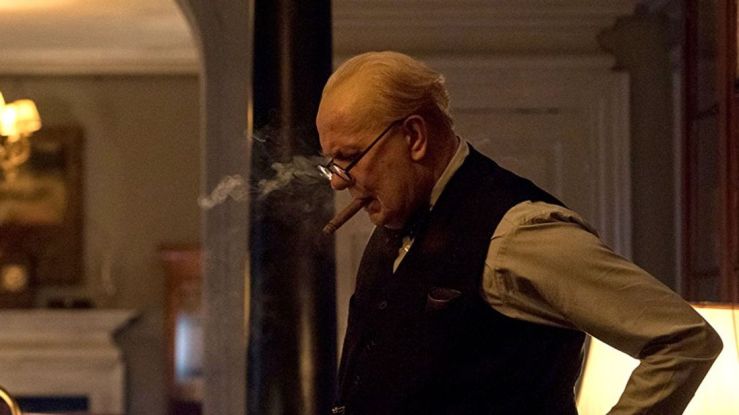 BEST ACTOR
BEST ACTOR
Will win: Gary Oldman (Darkest Hour)
Could win: Daniel Day-Lewis (Phantom Thread)
Should win: Daniel Kaluuya (Get Out)
Everybody loves Gary Oldman in a fat suit. It’s reason for Darkest Hour to win for makeup, and it’s definitely reason for Gary Oldman to win Best Actor. James Franco (The Disaster Artist) would’ve been his only serious competition had he not been snubbed, so finding a dark horse here required me to grasp at straws. There’s honestly not a lot of buzz building around any of these actors, not even Daniel Kaluuya. But there is buzz about Daniel Day-Lewis presumably retiring from acting, so there’s a slim chance he takes this one as a parting gift. But for that performance that anyone could’ve done? As much as I disliked the movie, I think Oldman would be the more deserving of the two.
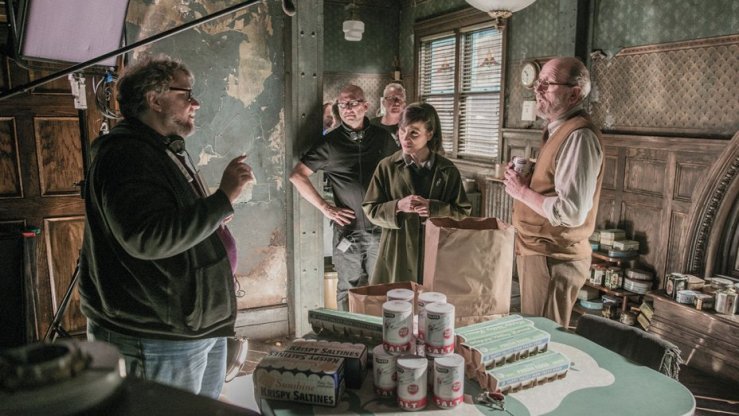 BEST DIRECTOR
BEST DIRECTOR
Will win: Guillermo del Toro (The Shape of Water)
Could win: Greta Gerwig (Lady Bird)
Should win: Guillermo del Toro (The Shape of Water)
NBR surprised us and went with Greta Gerwig. The Director’s Guild of America rewarded Jordan Peele (Get Out) as a first-time director. Both of their directing feats are nothing to scoff at, but Guillermo del Toro has been sweeping this category just as his film has in every other category it’s been leading in. I highly doubt that’ll change, especially since The Shape of Water is a strong contender for a number of other awards, including…
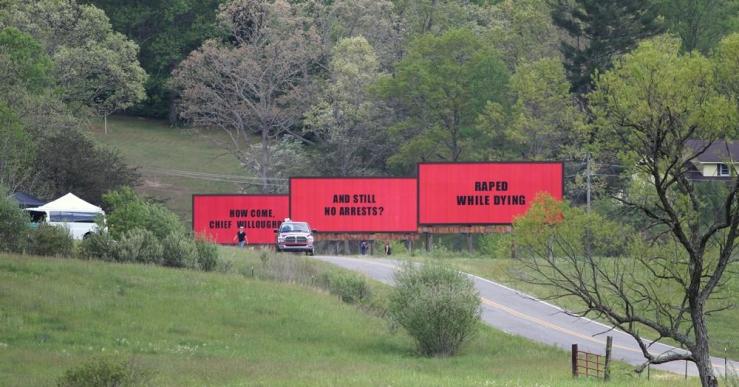 BEST PICTURE
BEST PICTURE
Will win: Three Billboards Outside Ebbing, Missouri
Could win: The Shape of Water
Should win: The Shape of Water
This was tough at first, as for awhile there was no clear frontrunner. NBR went with The Post, the Golden Globes went with Lady Bird in comedy, Critics Choice picked Get Out for horror, Call Me By Your Name is dominating screenplay wins, and Phantom Thread surprised everyone just by being nominated. But amidst the ashes of violent competition, two frontrunners kept fighting until the very end. The Shape of Water won Critics Choice and the Producers Guild of America, and it’s the indisputable leader in the Best Director race. Three Billboards Outside Ebbing, Missouri took the Golden Globes and the BAFTAs, as well as the SAG Ensemble, so it’s currently the safe bet. But it still has to fight to win for its screenplay, and Martin McDonagh missing out on a Best Director nomination is a big deal as very few Best Picture winners have ever not been nominated for Best Director. It’s gonna be a photo finish just like last year, but our only saving grace is that maybe Warren Beatty and Faye Dunaway will be given the correct envelope this time.
And that concludes my pre-Oscars commentary. I may write something on Monday to recap the actual winners, but these are my predictions going in. I’m curious to know what you think. Leave your thoughts in the comments section below, and may the best (or most heavily-marketed) movies win!
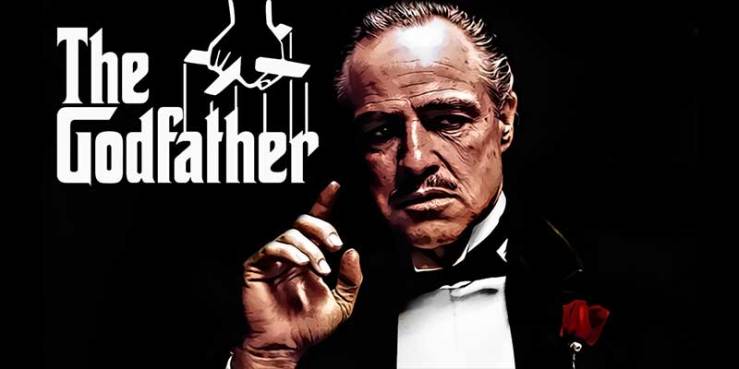 The winner of Bracket A was The Godfather, the first of Francis Ford Coppola’s acclaimed trilogy. Boasting an Oscar-winning performance from Marlon Brando as the titular character, Vito Corleone, the film is really about Vito’s son Michael (Al Pacino) as he walks the line between supporting his family of mafioso and becoming one himself. While the first film only won three Academy Awards, including Best Adapted Screenplay, The Godfather Part II (which also won Bracket D) was an awards juggernaut, taking home six Oscars as it chronicled Vito’s origins from Sicily and Michael’s rapid descent into darkness.
The winner of Bracket A was The Godfather, the first of Francis Ford Coppola’s acclaimed trilogy. Boasting an Oscar-winning performance from Marlon Brando as the titular character, Vito Corleone, the film is really about Vito’s son Michael (Al Pacino) as he walks the line between supporting his family of mafioso and becoming one himself. While the first film only won three Academy Awards, including Best Adapted Screenplay, The Godfather Part II (which also won Bracket D) was an awards juggernaut, taking home six Oscars as it chronicled Vito’s origins from Sicily and Michael’s rapid descent into darkness.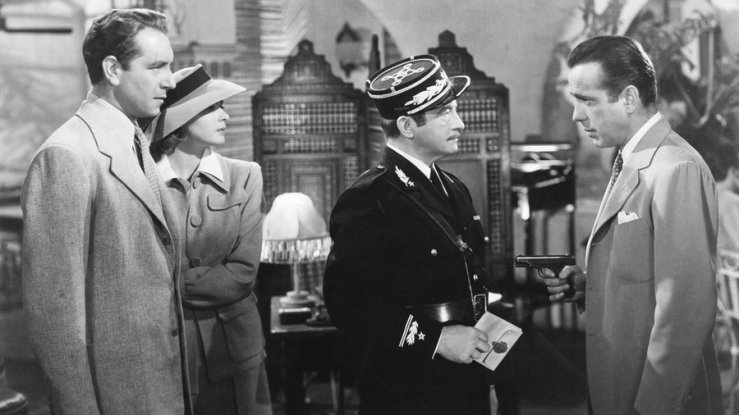 Bracket B was won by Casablanca, a rather interesting conundrum by Oscar standards. Not only did this film only win three Academy Awards, but it has an interesting slight with its year of release. While the film is so often credited as a 1942 release, it was actually the Best Picture winner of 1944, celebrating the best films of 1943. What this proves is that one of the greatest films of the early days of Hollywood was still a victim of the limited release system that plagues the rest of the world today. But hey, that was before studios used that to qualify for Oscars sooner rather than later, so this January 1943 release also proved that you don’t need an elaborate awards campaign to win Oscars (though it does help nowadays), rather you just need a great movie.
Bracket B was won by Casablanca, a rather interesting conundrum by Oscar standards. Not only did this film only win three Academy Awards, but it has an interesting slight with its year of release. While the film is so often credited as a 1942 release, it was actually the Best Picture winner of 1944, celebrating the best films of 1943. What this proves is that one of the greatest films of the early days of Hollywood was still a victim of the limited release system that plagues the rest of the world today. But hey, that was before studios used that to qualify for Oscars sooner rather than later, so this January 1943 release also proved that you don’t need an elaborate awards campaign to win Oscars (though it does help nowadays), rather you just need a great movie.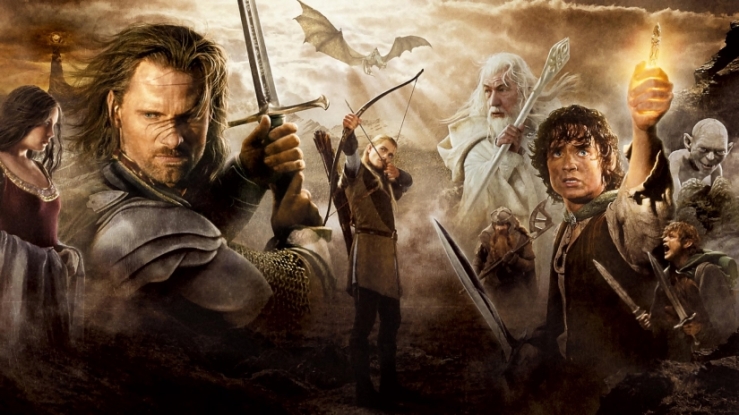 Finally, the winner of Bracket C was The Lord of the Rings: The Return of the King, the epic conclusion to Peter Jackson’s fantasy trilogy. While all three entries of this tale of elves, dwarfs, and men were nominated for Best Picture and took home a number of awards, The Return of the King holds the distinction of being one of three films to win eleven Academy Awards (the other two being Ben-Hur and Titanic), as well as the only of the three to have won every single Oscar it was nominated for. Because of its excellence in all elements of fantasy cinema, as well as film in general, it remains a game changer in Oscar history that even the most recent Best Picture winner cannot live up to.
Finally, the winner of Bracket C was The Lord of the Rings: The Return of the King, the epic conclusion to Peter Jackson’s fantasy trilogy. While all three entries of this tale of elves, dwarfs, and men were nominated for Best Picture and took home a number of awards, The Return of the King holds the distinction of being one of three films to win eleven Academy Awards (the other two being Ben-Hur and Titanic), as well as the only of the three to have won every single Oscar it was nominated for. Because of its excellence in all elements of fantasy cinema, as well as film in general, it remains a game changer in Oscar history that even the most recent Best Picture winner cannot live up to.

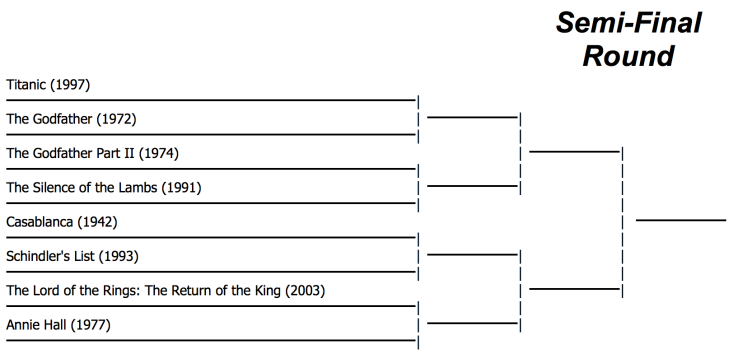 We’ve reached that point in the tournament when most of the expected contenders have started to match up against each other. The underdogs have fallen against the behemoths, and we now have eight Best Pictures left. After this week, four of these films will move on to the final round, and only one of them will be crowned champion of March Movie Madness. The Godfather and its first sequel are both still in this race, and both will face their hardest adversaries yet in Titanic and The Silence of the Lambs. Meanwhile, Annie Hall famously beat an epic fantasy film for Best Picture in 1977, but can it repeat its success today against The Lord of the Rings: The Return of the King? But I suppose the toughest match this round will be between Casablanca and Schindler’s List, and it’s not exactly a black-and-white match-up despite both films having little-to-no color. We’re going to lose some iconic films in this round, but this will be a true test as to how iconic they are compared to the present competition. Vote now and secure the future of your favorite film before it is left in the past!
We’ve reached that point in the tournament when most of the expected contenders have started to match up against each other. The underdogs have fallen against the behemoths, and we now have eight Best Pictures left. After this week, four of these films will move on to the final round, and only one of them will be crowned champion of March Movie Madness. The Godfather and its first sequel are both still in this race, and both will face their hardest adversaries yet in Titanic and The Silence of the Lambs. Meanwhile, Annie Hall famously beat an epic fantasy film for Best Picture in 1977, but can it repeat its success today against The Lord of the Rings: The Return of the King? But I suppose the toughest match this round will be between Casablanca and Schindler’s List, and it’s not exactly a black-and-white match-up despite both films having little-to-no color. We’re going to lose some iconic films in this round, but this will be a true test as to how iconic they are compared to the present competition. Vote now and secure the future of your favorite film before it is left in the past!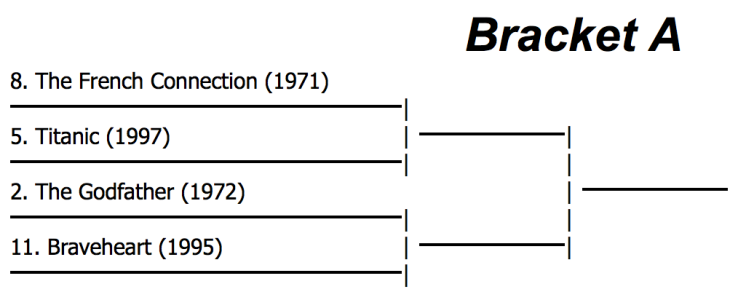 In Bracket A, we saw Gone with the Wind get blown away by The French Connection, and Braveheart defeated Gladiator. Both winners power their way to round three where The French Connection tries to slow down Titanic, and Braveheart is targeted for a hit by The Godfather. I think the expected winners will take it home this week, but if there’s anything this tournament has shown us, it’s that anything can happen.
In Bracket A, we saw Gone with the Wind get blown away by The French Connection, and Braveheart defeated Gladiator. Both winners power their way to round three where The French Connection tries to slow down Titanic, and Braveheart is targeted for a hit by The Godfather. I think the expected winners will take it home this week, but if there’s anything this tournament has shown us, it’s that anything can happen.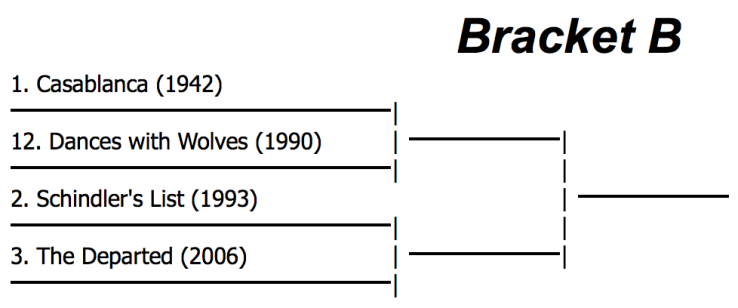 Meanwhile in Bracket B, it’s become clear that more people need to see the works of David Lean, as for a second week in a row his film got trampled by Dances with Wolves. The Kevin Costner vehicle certainly has more mileage than you’d expect, but its current destination is in Casablanca. It’s been a great run, and two top-tier films were unseated last week, but it’s gonna be tough for Dances with Wolves to move forward to the next round.
Meanwhile in Bracket B, it’s become clear that more people need to see the works of David Lean, as for a second week in a row his film got trampled by Dances with Wolves. The Kevin Costner vehicle certainly has more mileage than you’d expect, but its current destination is in Casablanca. It’s been a great run, and two top-tier films were unseated last week, but it’s gonna be tough for Dances with Wolves to move forward to the next round. Bracket C went pretty much as expected, with the surprise juggernaut Gandhi, having survived far longer than expected, was caught and jailed by In the Heat of the Night. The murder mystery starring Sidney Poitier now squares off against Annie Hall, while a battle of epic proportions takes place between Ben-Hur and The Lord of the Rings: The Return of the King.
Bracket C went pretty much as expected, with the surprise juggernaut Gandhi, having survived far longer than expected, was caught and jailed by In the Heat of the Night. The murder mystery starring Sidney Poitier now squares off against Annie Hall, while a battle of epic proportions takes place between Ben-Hur and The Lord of the Rings: The Return of the King.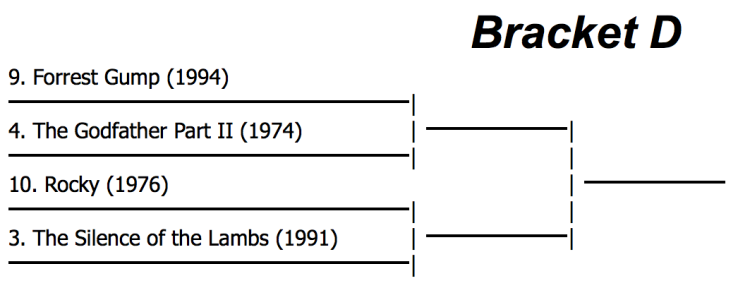 Bracket D has also had some significant upsets, starting with Forrest Gump outrunning The Sound of Music. On the other side of the ring, Rocky went the distance against It Happened One Night. Now these two heartfelt classics might get their hearts shot at or eaten as they go up against The Godfather Part II and The Silence of the Lambs. It’s about to become a bloodbath for somebody, but that’s what this tournament is about, right?
Bracket D has also had some significant upsets, starting with Forrest Gump outrunning The Sound of Music. On the other side of the ring, Rocky went the distance against It Happened One Night. Now these two heartfelt classics might get their hearts shot at or eaten as they go up against The Godfather Part II and The Silence of the Lambs. It’s about to become a bloodbath for somebody, but that’s what this tournament is about, right?



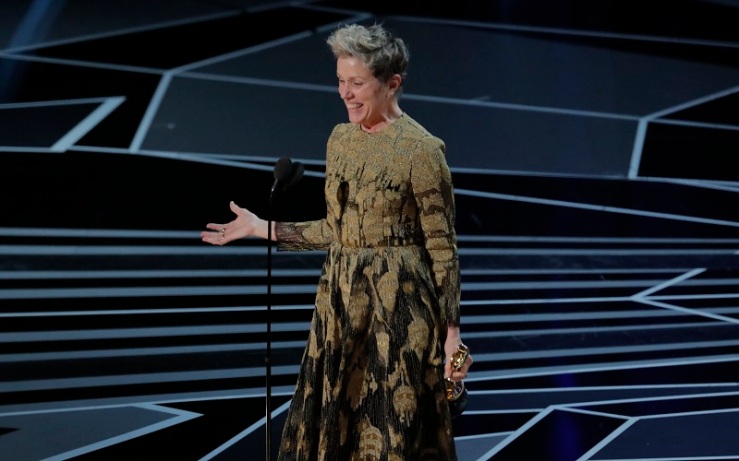

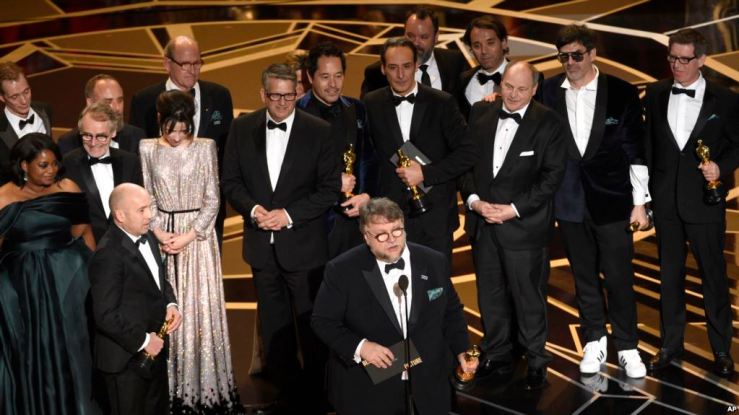

 Tomorrow night, the Oscars will be upon us for the 90th time, and the Academy seems to be doing everything in its power to reboot after a year’s worth of mishaps and mistakes on Hollywood’s part. And also of their own doing. While most people ended up throwing away their predictions for last year in a wild dumpster fire, this year seems to be both safer and harder to predict. There are obvious “safe” films that will likely win major awards, but then there seems to be a dark horse in every category (even the tech awards) that actually has a shot at taking home the gold. That’s what this final blog post on the 90th Academy Awards will focus on, predicting who will most likely win, as well as who could win. And just for the fun of it, I’ll throw in my own personal opinions on who should win.
Tomorrow night, the Oscars will be upon us for the 90th time, and the Academy seems to be doing everything in its power to reboot after a year’s worth of mishaps and mistakes on Hollywood’s part. And also of their own doing. While most people ended up throwing away their predictions for last year in a wild dumpster fire, this year seems to be both safer and harder to predict. There are obvious “safe” films that will likely win major awards, but then there seems to be a dark horse in every category (even the tech awards) that actually has a shot at taking home the gold. That’s what this final blog post on the 90th Academy Awards will focus on, predicting who will most likely win, as well as who could win. And just for the fun of it, I’ll throw in my own personal opinions on who should win. BEST VISUAL EFFECTS
BEST VISUAL EFFECTS BEST PRODUCTION DESIGN
BEST PRODUCTION DESIGN BEST COSTUME DESIGN
BEST COSTUME DESIGN BEST MAKEUP AND HAIRSTYLING
BEST MAKEUP AND HAIRSTYLING BEST SOUND EDITING/MIXING
BEST SOUND EDITING/MIXING BEST FILM EDITING
BEST FILM EDITING BEST ANIMATED FEATURE
BEST ANIMATED FEATURE BEST ORIGINAL SONG
BEST ORIGINAL SONG BEST ORIGINAL SCORE
BEST ORIGINAL SCORE BEST ADAPTED SCREENPLAY
BEST ADAPTED SCREENPLAY BEST ORIGINAL SCREENPLAY
BEST ORIGINAL SCREENPLAY BEST SUPPORTING ACTRESS
BEST SUPPORTING ACTRESS BEST SUPPORTING ACTOR
BEST SUPPORTING ACTOR BEST ACTRESS
BEST ACTRESS BEST ACTOR
BEST ACTOR BEST DIRECTOR
BEST DIRECTOR BEST PICTURE
BEST PICTURE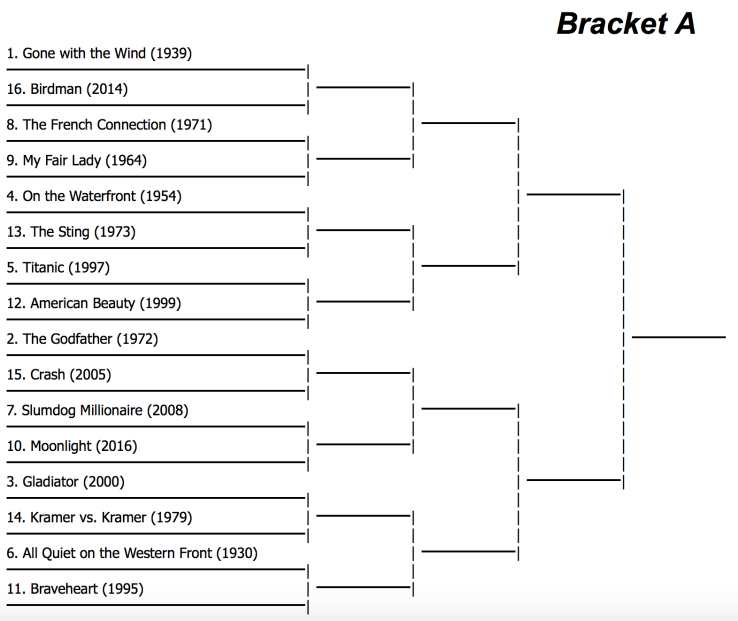 Everybody likes tournaments, right? Well I like tournaments, and I’ve noticed that people seem to love tournaments even more in March. I guess it has something to do with basketball, but my sports expertise is in football, hockey, and football. The other football. No, not that football, the OTHER football! You know, the one you’re not thinking abou- you know what, forget it. The point is, it’s tournament time, and this tournament shall last throughout all of March and be voted on by the one and only, you! The plural you, not the singu- whatever, you get it. It’s time to vote!
Everybody likes tournaments, right? Well I like tournaments, and I’ve noticed that people seem to love tournaments even more in March. I guess it has something to do with basketball, but my sports expertise is in football, hockey, and football. The other football. No, not that football, the OTHER football! You know, the one you’re not thinking abou- you know what, forget it. The point is, it’s tournament time, and this tournament shall last throughout all of March and be voted on by the one and only, you! The plural you, not the singu- whatever, you get it. It’s time to vote!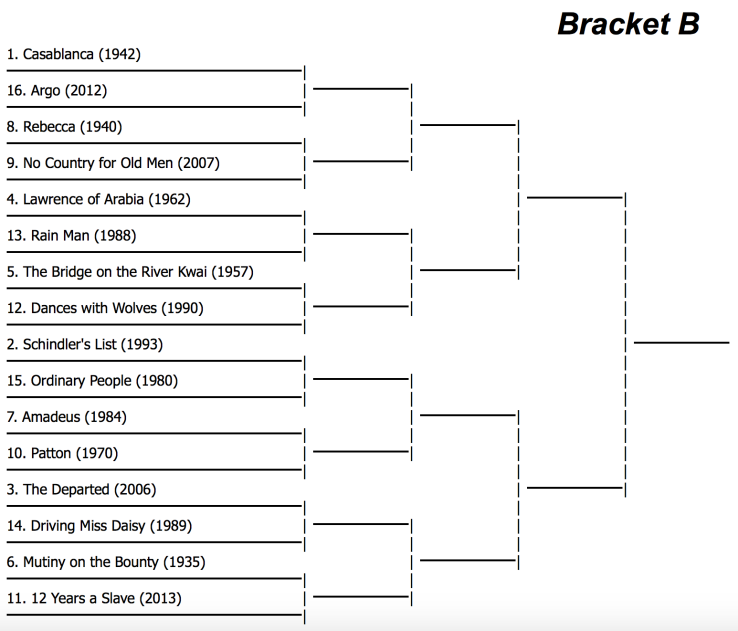 Since the Oscars are being held in March instead of February this year, I’ve decided to theme this year’s March Movie Madness tournament around the Best Picture-winning films. Haven’t seen all of them? Well voting will last for a week each round, so you’ll have plenty of time to do your research. I’ve chosen sixty-four films for everyone to vote on for the first of six rounds, and separated them all into four brackets of sixteen. Now for the sake of getting this tournament started in a timely fashion, I will not include whatever wins Best Picture at the 90th Academy Awards to be held on Sunday, March 4. However, everything that won from 1927-2016 was up for consideration.
Since the Oscars are being held in March instead of February this year, I’ve decided to theme this year’s March Movie Madness tournament around the Best Picture-winning films. Haven’t seen all of them? Well voting will last for a week each round, so you’ll have plenty of time to do your research. I’ve chosen sixty-four films for everyone to vote on for the first of six rounds, and separated them all into four brackets of sixteen. Now for the sake of getting this tournament started in a timely fashion, I will not include whatever wins Best Picture at the 90th Academy Awards to be held on Sunday, March 4. However, everything that won from 1927-2016 was up for consideration.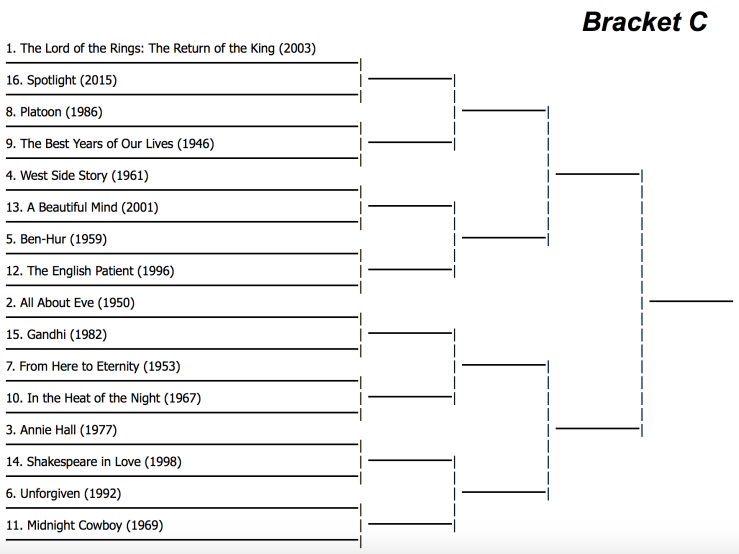 The links to the polls will be posted below for all of you to access. There will be one for each bracket to make voting a little simpler for you, and also so the brackets are easier for me to make without paying a ton of money to make them. I would also appreciate it greatly if you shared this blog post with your friends so they can vote too. As the saying goes, the more the merrier!
The links to the polls will be posted below for all of you to access. There will be one for each bracket to make voting a little simpler for you, and also so the brackets are easier for me to make without paying a ton of money to make them. I would also appreciate it greatly if you shared this blog post with your friends so they can vote too. As the saying goes, the more the merrier!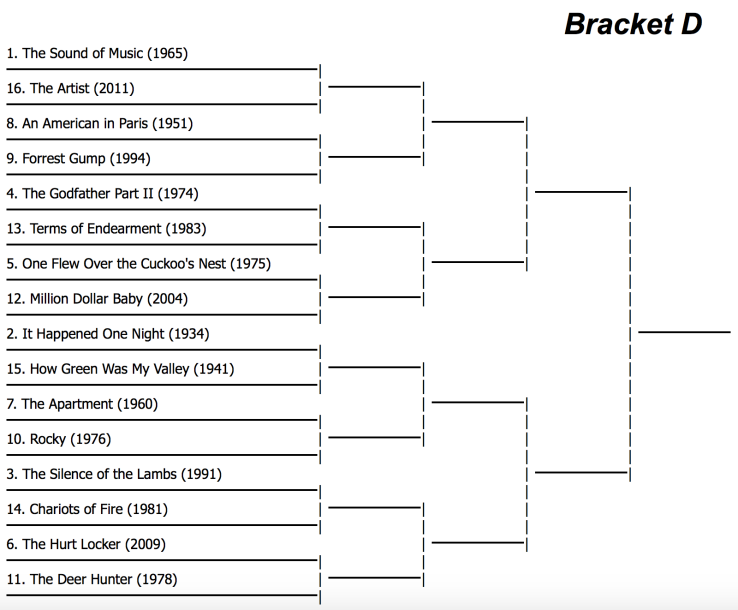 So what are we waiting for? The polls are open! Time to vote!
So what are we waiting for? The polls are open! Time to vote!
 10. The King’s Speech – This is the very definition of an inspirational film, and I do mean that in the best way. Colin Firth (Tinker Tailor Soldier Spy) gives the performance of his career as King George VI, finding all the best places to insert Bertie’s signature stammer in the screenplay. Under the hands of a more gutsy director, this could have been a true tour-de-force film that deserved to win Best Picture. But under the direction of Tom Hooper (Les Misérables), it just feels rather safe. However, despite it being at the bottom of my list, this is by no means a bad movie, and it still holds a special place in my heart as one of the tools I used to overcome my own stammer. Again, the very definition of an inspirational film, just not much beyond that.
10. The King’s Speech – This is the very definition of an inspirational film, and I do mean that in the best way. Colin Firth (Tinker Tailor Soldier Spy) gives the performance of his career as King George VI, finding all the best places to insert Bertie’s signature stammer in the screenplay. Under the hands of a more gutsy director, this could have been a true tour-de-force film that deserved to win Best Picture. But under the direction of Tom Hooper (Les Misérables), it just feels rather safe. However, despite it being at the bottom of my list, this is by no means a bad movie, and it still holds a special place in my heart as one of the tools I used to overcome my own stammer. Again, the very definition of an inspirational film, just not much beyond that.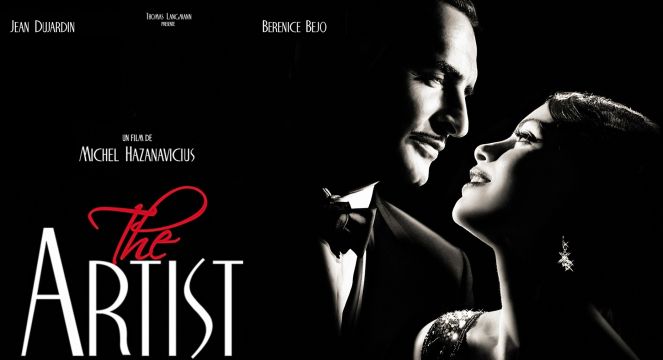 9. The Artist – Another safe movie, but there is a significant difference between The Artist and The King’s Speech, and that difference is what ultimately resulted in the former ranking higher on this list. Instead of being safe but inspirational like The King’s Speech, The Artist lacks in inspiration but makes up for it by actually taking advantage of its craft. Okay, it doesn’t do that much, but this almost-completely silent film does have a couple jarring scenes with sound that are used to great effect, each showing the turmoil and development of its protagonist. The end result may not have been spectacular, but the ambition is definitely there. Sometimes, that’s enough to get you a leg up over someone else.
9. The Artist – Another safe movie, but there is a significant difference between The Artist and The King’s Speech, and that difference is what ultimately resulted in the former ranking higher on this list. Instead of being safe but inspirational like The King’s Speech, The Artist lacks in inspiration but makes up for it by actually taking advantage of its craft. Okay, it doesn’t do that much, but this almost-completely silent film does have a couple jarring scenes with sound that are used to great effect, each showing the turmoil and development of its protagonist. The end result may not have been spectacular, but the ambition is definitely there. Sometimes, that’s enough to get you a leg up over someone else.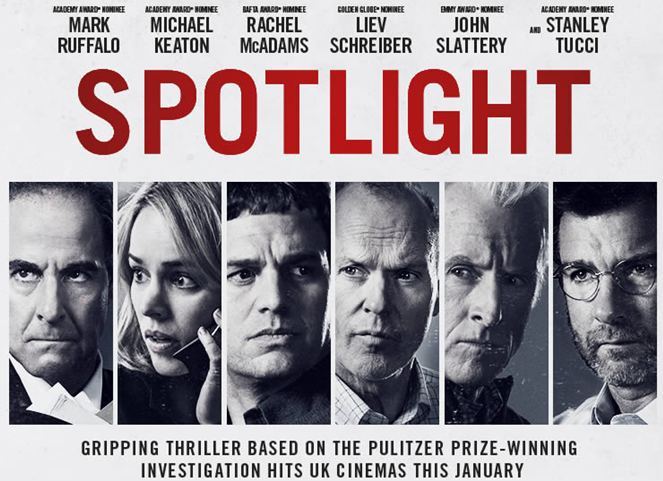 8. Spotlight – Most people might’ve forgotten that this movie won Best Picture. While that may be mostly because it came on the heels of Leonardo DiCaprio (Inception) finally winning an Oscar, I think part of the reason is how stale and unmoving it is. In some ways, that’s the film’s biggest weakness, as it’s hard to get invested in a story and characters when the story and characters themselves aren’t invested in the story and characters. But that may also be its biggest strength, as one of the major themes of the film is that the pedophile priests were in plain sight and everybody knew about them, but for one reason or another they were too afraid to say anything. Whichever way you look at it, this is definitely a film that lends itself to airing on TV, and I guess someone had the bright idea that it was meant for bigger things.
8. Spotlight – Most people might’ve forgotten that this movie won Best Picture. While that may be mostly because it came on the heels of Leonardo DiCaprio (Inception) finally winning an Oscar, I think part of the reason is how stale and unmoving it is. In some ways, that’s the film’s biggest weakness, as it’s hard to get invested in a story and characters when the story and characters themselves aren’t invested in the story and characters. But that may also be its biggest strength, as one of the major themes of the film is that the pedophile priests were in plain sight and everybody knew about them, but for one reason or another they were too afraid to say anything. Whichever way you look at it, this is definitely a film that lends itself to airing on TV, and I guess someone had the bright idea that it was meant for bigger things.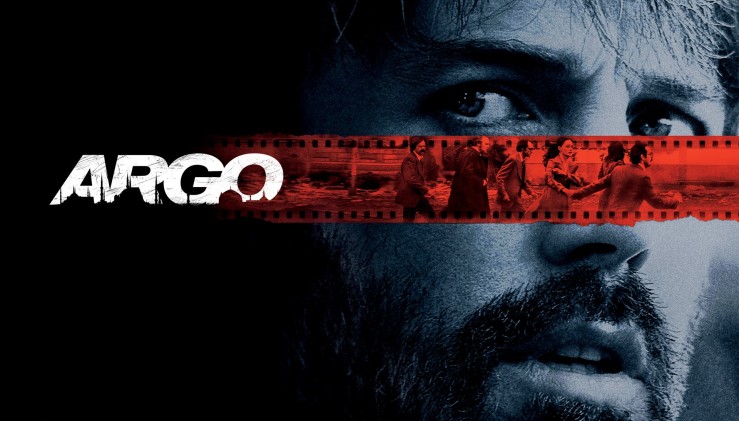 7. Argo – This is the only reason I still consider Three Billboards Outside Ebbing, Missouri to be a prominent Best Picture contender this year, because very few movies have won Best Picture without even being nominated for Best Director. While many may attribute this to the film being about Hollywood swooping in and saving the day, let’s not forget that this is still a well-made thriller with some genuinely suspenseful sequences, particularly the opening raid on the American Embassy in Iran and a marketplace tour towards the end of the second act. My only real issue is that the supporting cast isn’t terribly memorable, and they’re the people who we’re supposed to care about whether or not they’re rescued. That’s why it’s not higher on this list, but it’s still worth a viewing or two nonetheless.
7. Argo – This is the only reason I still consider Three Billboards Outside Ebbing, Missouri to be a prominent Best Picture contender this year, because very few movies have won Best Picture without even being nominated for Best Director. While many may attribute this to the film being about Hollywood swooping in and saving the day, let’s not forget that this is still a well-made thriller with some genuinely suspenseful sequences, particularly the opening raid on the American Embassy in Iran and a marketplace tour towards the end of the second act. My only real issue is that the supporting cast isn’t terribly memorable, and they’re the people who we’re supposed to care about whether or not they’re rescued. That’s why it’s not higher on this list, but it’s still worth a viewing or two nonetheless.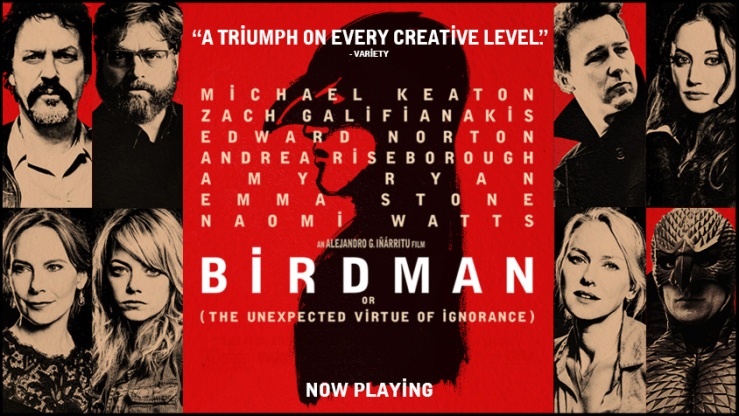 6. Birdman – Yet another film about Hollywood, though this one does take a bit of a stab at it. The theme of the film seems to be rebellion, and this is mostly shown through Riggan Thomson (Michael Keaton) and his daughter Sam (Emma Stone), the latter rebelling against her father who is rebelling against Hollywood and superhero films, each having provided a lot for the well-being of those under them in this rebel cycle. Basically, everybody’s biting the hand that feeds them, but the film also tries to show how that hand is also choking them, which makes us ask if either action is ever justified. The long-take (or illusion thereof) by cinematographer Emmanuel Lubezki (Gravity) further illustrates this rebellion against the myriads of quick cuts seen in most superhero movies, and major props to the production designers for keeping the sets filled with something interesting to look at the entire time. While it may not soar like its title character, its wings are still powerful enough to get airborne.
6. Birdman – Yet another film about Hollywood, though this one does take a bit of a stab at it. The theme of the film seems to be rebellion, and this is mostly shown through Riggan Thomson (Michael Keaton) and his daughter Sam (Emma Stone), the latter rebelling against her father who is rebelling against Hollywood and superhero films, each having provided a lot for the well-being of those under them in this rebel cycle. Basically, everybody’s biting the hand that feeds them, but the film also tries to show how that hand is also choking them, which makes us ask if either action is ever justified. The long-take (or illusion thereof) by cinematographer Emmanuel Lubezki (Gravity) further illustrates this rebellion against the myriads of quick cuts seen in most superhero movies, and major props to the production designers for keeping the sets filled with something interesting to look at the entire time. While it may not soar like its title character, its wings are still powerful enough to get airborne.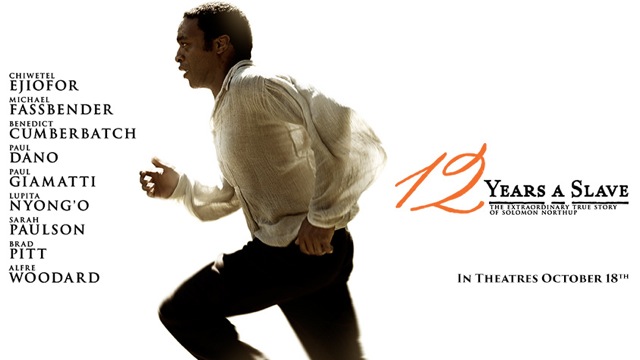 5. 12 Years a Slave – You all knew we were gonna get to this one sooner or later. You don’t want to talk about it, just like you didn’t want it to win. Well, I’m with you, but I’m the one writing this blog so we’re gonna talk about it anyway. This is a cold and unforgiving portrait of slavery in pre-Civil War America, even more so when Solomon Northup (Chiwetel Ejiofor) had tasted freedom his whole life. As painful as it is to watch, a lot of that is thanks to the actors and how much range they bring to their performances, particularly Chiwetel Ejiofor (The Martian) and Michael Fassbender (Inglourious Basterds). They prove that the calmest scenes can be just as unsettling as anything else when the setting is this relentlessly cruel. There, now that we’re done, we can be happy, right?
5. 12 Years a Slave – You all knew we were gonna get to this one sooner or later. You don’t want to talk about it, just like you didn’t want it to win. Well, I’m with you, but I’m the one writing this blog so we’re gonna talk about it anyway. This is a cold and unforgiving portrait of slavery in pre-Civil War America, even more so when Solomon Northup (Chiwetel Ejiofor) had tasted freedom his whole life. As painful as it is to watch, a lot of that is thanks to the actors and how much range they bring to their performances, particularly Chiwetel Ejiofor (The Martian) and Michael Fassbender (Inglourious Basterds). They prove that the calmest scenes can be just as unsettling as anything else when the setting is this relentlessly cruel. There, now that we’re done, we can be happy, right?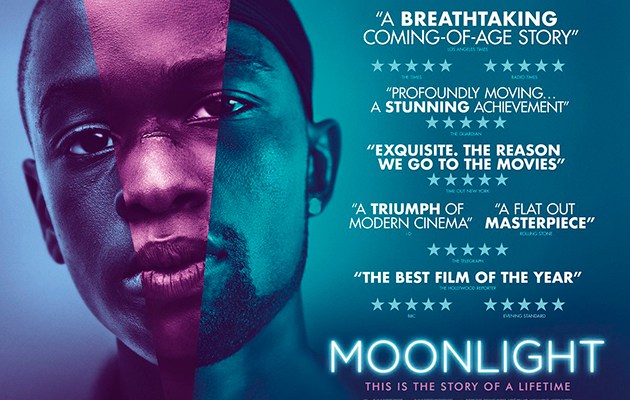 4. Moonlight – It’s no mistake, Moonlight just barely missed out on the top three. As much as anyone can relate to this story, especially as someone who spent years living in and exploring South Florida, much of this film’s longevity will be because of the manner in which it was presented with the Best Picture Oscar. But while it may be too artsy for casual viewers’ tastes, it’s still a great film that tells a sprawling epic on an intimate scale. If you’ve been to South Beach, you immediately recognize it when one of the film’s key scenes begins there, even though it may look like just any other beach. It’s a film about a journey, which is what most movies are anyway, but this journey is unique to the character of Chiron and unique throughout cinema, and somehow we all saw ourselves in this journey. And that is no mistake.
4. Moonlight – It’s no mistake, Moonlight just barely missed out on the top three. As much as anyone can relate to this story, especially as someone who spent years living in and exploring South Florida, much of this film’s longevity will be because of the manner in which it was presented with the Best Picture Oscar. But while it may be too artsy for casual viewers’ tastes, it’s still a great film that tells a sprawling epic on an intimate scale. If you’ve been to South Beach, you immediately recognize it when one of the film’s key scenes begins there, even though it may look like just any other beach. It’s a film about a journey, which is what most movies are anyway, but this journey is unique to the character of Chiron and unique throughout cinema, and somehow we all saw ourselves in this journey. And that is no mistake.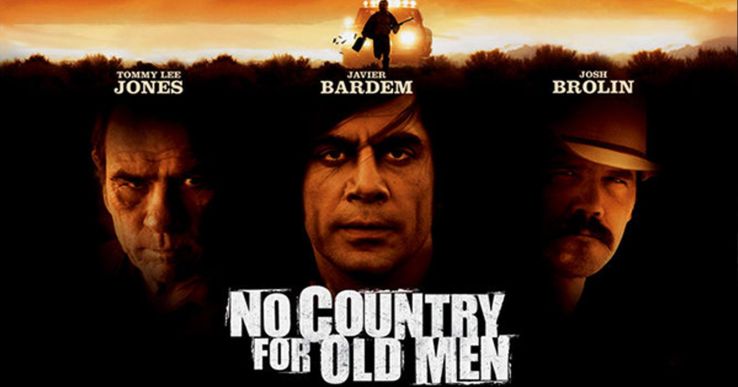 3. No Country for Old Men – Like Anton Chigurh (Javier Bardem), we’re starting to creep into darker territory here, and also where the films become more deserving of a Best Picture win. While I would not have voted for it to win, this is still a fantastic effort by the then-overdue Coen Brothers (True Grit), who infused their signature wit into a lawless and desolate wasteland that makes the Old West look like a rompin’ good time. All of the actors give it their all, but it really is Javier Bardem (Skyfall) who steals the show and everything else out from under everyone. It’s the kind of movie that slowly stalks you after you’re done watching it and appears in your thoughts when you least expect it, even though you’ve been anticipating its arrival the whole time.
3. No Country for Old Men – Like Anton Chigurh (Javier Bardem), we’re starting to creep into darker territory here, and also where the films become more deserving of a Best Picture win. While I would not have voted for it to win, this is still a fantastic effort by the then-overdue Coen Brothers (True Grit), who infused their signature wit into a lawless and desolate wasteland that makes the Old West look like a rompin’ good time. All of the actors give it their all, but it really is Javier Bardem (Skyfall) who steals the show and everything else out from under everyone. It’s the kind of movie that slowly stalks you after you’re done watching it and appears in your thoughts when you least expect it, even though you’ve been anticipating its arrival the whole time. 2. Slumdog Millionaire – If we don’t count the two or three or four movies that should’ve been nominated for Best Picture that year but weren’t, the Academy made the right choice picking this movie. Even if we do count them, there’s still that argument to be made. Danny Boyle (127 Hours) doesn’t shy away from showing the darker side of the slums in India, but at the same time he borrows a few tactics from Bollywood filmmaking to craft this love story that spans across time, distance, and game shows. There are plenty of dark moments, but it’s ultimately satisfying at the end, and the music by A. R. Rahman (Lagaan) fits the mood throughout the entire film. It’s a feel good movie that gives you every reason and desire to feel good. Whether you think it’s outclassed or not, it’s still one for the ages.
2. Slumdog Millionaire – If we don’t count the two or three or four movies that should’ve been nominated for Best Picture that year but weren’t, the Academy made the right choice picking this movie. Even if we do count them, there’s still that argument to be made. Danny Boyle (127 Hours) doesn’t shy away from showing the darker side of the slums in India, but at the same time he borrows a few tactics from Bollywood filmmaking to craft this love story that spans across time, distance, and game shows. There are plenty of dark moments, but it’s ultimately satisfying at the end, and the music by A. R. Rahman (Lagaan) fits the mood throughout the entire film. It’s a feel good movie that gives you every reason and desire to feel good. Whether you think it’s outclassed or not, it’s still one for the ages. 1. The Hurt Locker – Finally at the top, we come to one of the best and most challenging war films of the 21st Century, one whose screenplay runs with the traditional hero’s journey but then flips it on its head. Kathryn Bigelow (Zero Dark Thirty) understood what this script was going for, and had the film shot with as much realism in order to normalize the experience of war to the audience, which is exactly the perspective we need to be in to understand the decisions made by the protagonist. For him, war is the normal world, and this is important in understanding the character and the culture we live in where we have become so desensitized to war and violence that we can’t get enough of it, almost like an addiction that we rush back to every chance we get. It’s a haunting and realistically fresh take on familiar themes and stories, but that makes it all the better because of it, and that’s why it’s the best Best Picture winner of the last decade.
1. The Hurt Locker – Finally at the top, we come to one of the best and most challenging war films of the 21st Century, one whose screenplay runs with the traditional hero’s journey but then flips it on its head. Kathryn Bigelow (Zero Dark Thirty) understood what this script was going for, and had the film shot with as much realism in order to normalize the experience of war to the audience, which is exactly the perspective we need to be in to understand the decisions made by the protagonist. For him, war is the normal world, and this is important in understanding the character and the culture we live in where we have become so desensitized to war and violence that we can’t get enough of it, almost like an addiction that we rush back to every chance we get. It’s a haunting and realistically fresh take on familiar themes and stories, but that makes it all the better because of it, and that’s why it’s the best Best Picture winner of the last decade.
